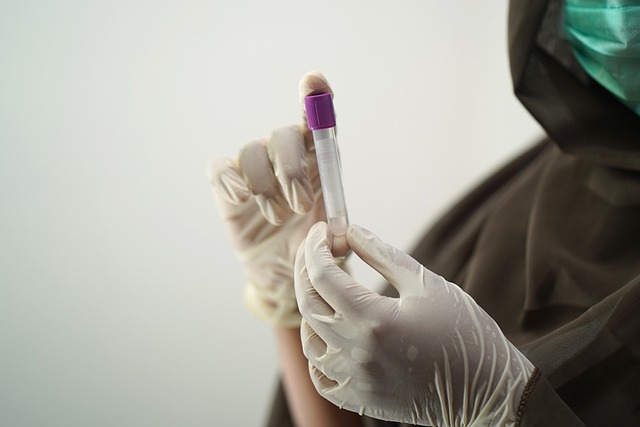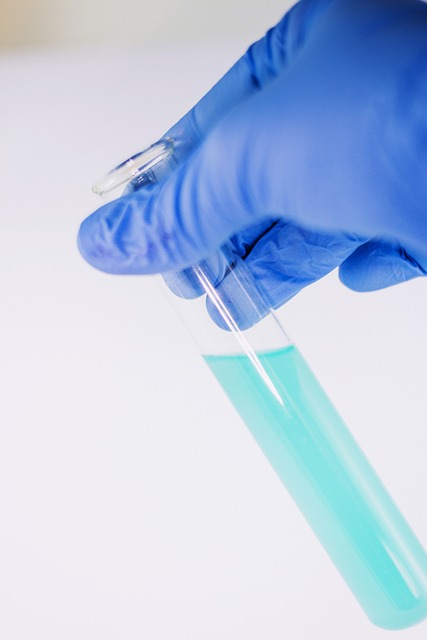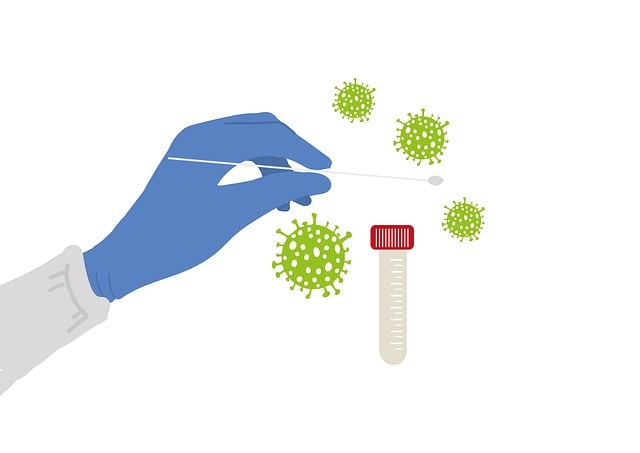The monitoring of male health with a focus on testosterone levels is increasingly reliant on advanced liver blood tests in the UK. These sophisticated assessments offer immediate insights into hormonal status by evaluating specific enzymes and proteins that reflect liver function, which can affect testosterone production and metabolism. The NHS provides access to these tests through a GP consultation and blood collection at an NHS facility. For testosterone levels, normal range is typically between 12 to 35 nmol/L, but this may vary. Additionally, liver function tests (LFTs) measure parameters like ALT, AST, ALP, GGT, and Bilirubin to identify potential liver issues. These tests are crucial for diagnosing conditions such as hypogonadism and infertility by understanding the interplay between liver health and testosterone levels. Regular monitoring enables early detection and prompt intervention for male health issues related to testosterone deficiency. The integration of the Advanced Liver Blood Test UK into health screenings is emphasized for its dual benefits in diagnosing and managing these health concerns, underscoring the importance of proactive health management for men. This approach facilitates informed decision-making and supports the early detection and effective management of male hormonal issues within the UK's healthcare system.
testosterone levels, male health issues, advanced liver blood tests, UK healthcare, men’s health guidance
Maintaining optimal health is a multifaceted endeavor, particularly for men who must contend with various physiological factors. A pivotal aspect of this wellness journey involves monitoring testosterone levels, which play a critical role in overall male health. This article delves into the significance of advanced liver blood tests as a tool for assessing testosterone levels within the UK context. It aims to equip men with the knowledge they need to navigate the healthcare system effectively and understand their test results, ensuring informed decisions about their health and lifestyle choices. With a focus on the UK’s unique healthcare landscape, this comprehensive guide offers insights into accessing and interpreting testosterone and advanced liver blood tests, thereby empowering men to take charge of their well-being.
- Understanding the Role of Advanced Liver Blood Tests in Monitoring Testosterone Levels for Male Health
- The Importance of Testosterone Level Testing: A Comprehensive Guide for Men's Health UK
- Navigating the UK's Healthcare Landscape: Accessing and Interpreting Testosterone and Advanced Liver Blood Test Results
Understanding the Role of Advanced Liver Blood Tests in Monitoring Testosterone Levels for Male Health

Male health monitoring often includes assessing hormonal balances, with testosterone being a key hormone for male well-being. Advanced liver blood tests play a pivotal role in this context. These tests are not only accurate but also provide immediate insights into an individual’s hormonal status. In the UK, healthcare providers are increasingly utilising these sophisticated tests to measure testosterone levels effectively. The advanced liver blood test UK specifically targets specific enzymes and proteins indicative of liver function, which in turn can influence testosterone production and metabolism. By understanding the interplay between liver health and testosterone, healthcare professionals can better diagnose and treat conditions like hypogonadism or infertility. Regular monitoring through these tests ensures that any abnormalities are detected early, allowing for timely intervention and management of male health issues related to testosterone deficiency. This proactive approach underscores the importance of incorporating advanced liver blood tests in the comprehensive health assessment of males, particularly those experiencing symptoms suggestive of hormonal imbalances.
The Importance of Testosterone Level Testing: A Comprehensive Guide for Men's Health UK

Testosterone is a pivotal hormone in men’s health, influencing everything from muscle mass and bone density to libido and mood. Regular testosterone level testing is an indispensable tool for understanding a man’s overall well-being, as imbalances can indicate underlying health issues. For the Men’s Health UK audience, such tests are not merely a diagnostic measure but a proactive step towards maintaining vitality and addressing age-related declines in hormone production. An Advanced Liver Blood Test UK is a key component of this process, as liver health directly affects testosterone production and metabolism. This comprehensive guide emphasises the significance of monitoring testosterone levels alongside other relevant markers, ensuring a holistic view of one’s health status.
Understanding the nuances of hormonal balance requires more than a single test; it demands consistent monitoring over time to capture trends and responses to treatment. The Advanced Liver Blood Test UK not only provides insight into liver function but also correlates with testosterone levels, offering a dual advantage in diagnosing and managing conditions like hypogonadism or liver disease. By integrating this advanced test within routine health screenings, men can take charge of their health, potentially preventing or mitigating the effects of hormonal deficiencies or liver dysfunction. This guide aims to empower men with knowledge about the importance of such tests and how they can lead to early detection and effective management of health concerns linked to testosterone levels.
Navigating the UK's Healthcare Landscape: Accessing and Interpreting Testosterone and Advanced Liver Blood Test Results

Men seeking to understand their health status through testosterone level testing are navigating an increasingly sophisticated healthcare landscape in the UK. The National Health Service (NHS) provides comprehensive healthcare services, including tests for hormonal and liver function markers. For those interested in advanced liver blood tests, such as liver function tests (LFTs), which can be indicative of overall liver health and potential issues like hepatitis or cirrhosis, it is essential to ensure these are part of the requested test panel. Testosterone levels are a key indicator of male hormonal health, with implications for sexual function, muscle mass, and overall well-being. When accessing these tests via the NHS, patients can expect a thorough evaluation process that involves a GP consultation followed by the collection of blood samples at an NHS facility.
Once the blood sample is collected, it is sent to an accredited laboratory for analysis. The results of both testosterone and advanced liver blood tests in the UK are typically reported with clear guidelines to interpret them. Testosterone levels are measured in nanomoles per litre (nmol/L), with normal ranges generally being 12 to 35 nmol/L for adult males, although individual thresholds can vary. For liver function tests, parameters such as Alanine Aminotransferase (ALT), Aspartate Aminotransferase (AST), Alkaline Phosphatase (ALP), Gamma-Glutamyl Transferase (GGT), and Bilirubin levels are measured to assess liver health. Understanding the results requires not only familiarity with these values but also the context of the individual’s overall health, lifestyle, and any symptoms they may be experiencing. Patients should discuss their test results with their healthcare provider to fully comprehend the implications and any necessary follow-up actions. The NHS offers resources for patients to learn about these tests and their outcomes, ensuring informed decision-making in managing male health issues related to hormone levels and liver function.
Men’s health management has significantly advanced with the advent of sophisticated diagnostic tools, notably the Advanced Liver Blood Test available in the UK. This article has delved into the critical role this test plays in monitoring testosterone levels and its implications for male health. Understanding how to access and interpret these results within the UK’s healthcare system is paramount for early detection and management of related health issues. By integrating such testing, men can take proactive steps towards maintaining optimal health, with professional guidance ensuring accurate diagnosis and effective treatment. The comprehensive guide provided underscores the importance of testosterone level testing as a vital component of men’s health assessments in the UK.
